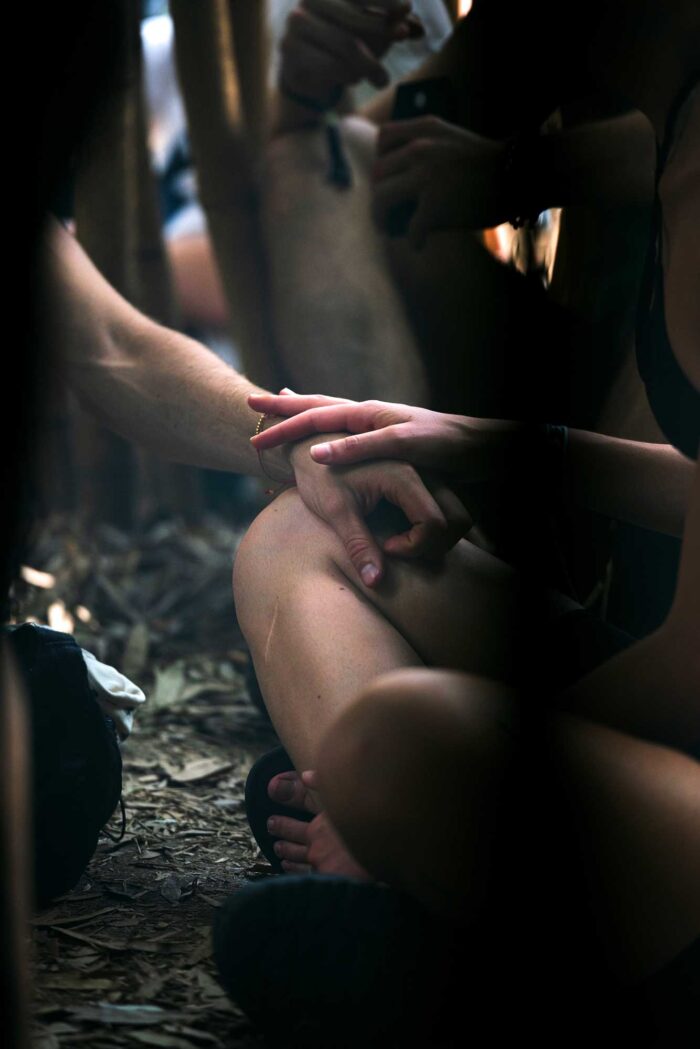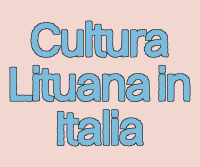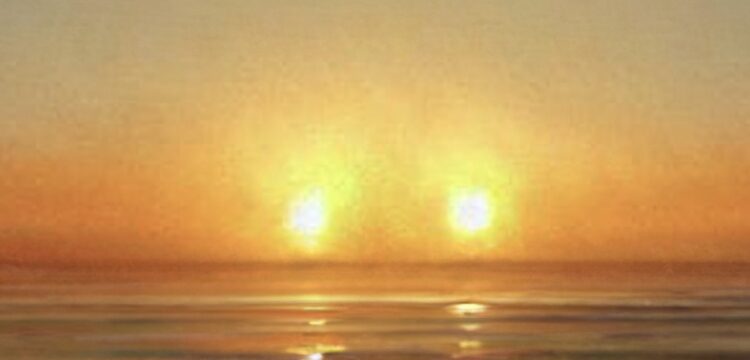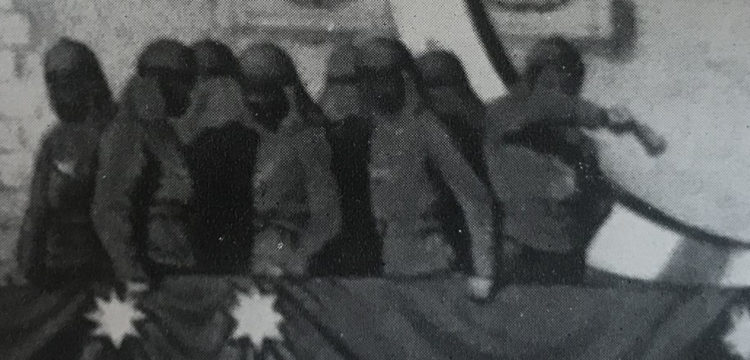Lucid Fictions
Introducing GRIEND (Puce Mary & Rainy Miller)
On July 5th, 2025, for the fourth edition of LOST Festival, Franco Maria Ricci’s Labirinto della Masone will host the world premiere of GRIEND. Embracing the task of writing about something that does not yet exist, we connected with artists Puce Mary and Rainy Miller to talk about the making of this new collaborative project. We gathered clues and impressions, and then used imagination and fiction to paint an inherently hazy picture of a place suspended between reality and a dreamlike state: a remote island, a no-man’s-land, its blurred contours merging with the features of the world’s largest bamboo labyrinth.
Adrift in the Wadden Sea lies a small, green thread of land called Griend. Once part of the ancient Dutch coastline—breached and flooded thousands of years ago—this little island has gradually drifted southeast, slowly worn away by the sea, shrinking with each tide. Now, it lies almost entirely empty, a smudge of land rising as if from nowhere.
A solitary cabin, used by birdwatchers and biologists in summer, is the only remnant of human presence. Otherwise, Griend is now uninhabited, closed to the public—left to wind and water, and to many, rare species of bird that return here to breed during mating season.
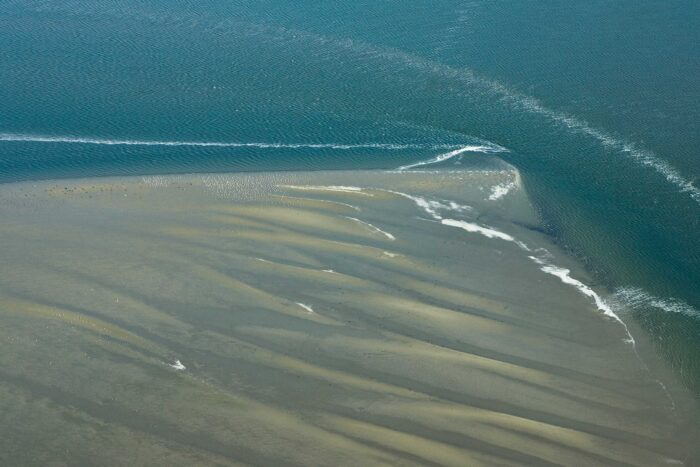
Around 500 km west of Griend is Preston, home to Jack Bowes, aka Rainy Miller. Alongside fellow artists Space Afrika, Iceboy Violet, and Blackhaine—“a bit of a crew” proudly carrying the flag of Northern England—he is part of what’s come to represent one of the most interesting and distinct avant-gardes on the current music scene.
Jack got into music at a young age, carried by the grime wave that, from London, swept through Preston in the early 2010s. Over the years, he carved out his own path experimenting across different genres—from ambient to rap—grounding his work in a deeply personal and carefully crafted form of lyricism as intimate as rich in echoes and allusions. Committed to “all honesty,” even in the absence of formal musical training, Rainy Miller has forged a sound that is unmistakably his own, and deeply rooted in the context of his hometown.
With the release of his most recent album Joseph, What Have You Done?, he introduced his vision of Northern Gothic, acknowledging a certain kinship with the US tradition of the Southern Gothic—a kind of dark folklore that intertwines music and religious sentiment. Framing his use of the guitar and his pursuit of a distinct vocal expression within a specific genealogy, this reference further grounds his work in the context of Lancashire, yet projecting a vision of Preston as surrounded by rivers and woods, and crowded, more than with factories, with churches and other symbols of Christianity.
Turning northeast from Griend, at roughly the same distance as Preston, is Copenhagen. Here, Frederikke Hoffmeier—known under the moniker Puce Mary—started making music within the city’s underground noise and punk communities, which also gave rise to influential label Posh Isolation, behind some of her early releases.
Mostly associated with industrial music, Puce Mary has broken down familiar motifs and vernaculars of noise, deconstructing the genre’s conventions and then expanding into other musical territories. Never “feeling restricted by expectations,” she devoted years broadening the scope of her practice alongside her evolving interests, to create unique sonic imageries and immersive listening experiences.
A haunting, cinematic quality runs through most of her work, which has moved toward a balance of sharp, abrasive textures and eerie, atmospheric moments, creating complex sonic landscapes and reaching new emotional depths. This is especially evident in the critically acclaimed soundtrack composed for Magnus von Horn’s The Girl with the Needle (2024), but can be sensed already in two beautiful records she released in 2022 through her own label hypersomnia: You Must Have Been Dreaming and STUCK.
Included in You Must Have Been Dreaming is a track called Uranian Swallow, which was loosely inspired by a Derek Jarman poem recited in the final scenes of The Garden (1990)—a “trance film” shot against the backdrop of the Dungeness coast and Prospect Cottage, once a fisherman’s hut, which then became Jarman’s home until his death. “Holding the hands of dead friends,” in the poem Jarman mourns those he lost to AIDS, gesturing toward a communion between the living and the dead, and this sense of liminality, of life and death blurring together is what Uranian Swallow seems to translate into sound.
“The music sort of emerged from the deep during a strange time in my life,” Frederikke told us. “Half way through creating it, it seemed as if it had started to complete itself. It’s hard to explain, but this specific track sort of has its own life.” After the release, Jack reached out to tell her how he felt about the track, carrying qualities of a funeral song, a piece about grief in its widest sense. His words resonated deeply with Frederikke. She felt as if, through his words, she could suddenly see things she might have subconsciously put into the track—“as if I had meant for the music to carry that weight all along.”
They kept this conversation going, and earlier this year, before sharing the stage at La Station in Paris, Frederikke asked Jack to write something on Uranian Swallow, so that they could perform it together, as a one-off thing. “The text is absolutely beautiful, daring, and devastating,” she told us. “It felt profound. And it really connected us.” “We did it together as the last song of the night, and it just blew the whole room away,” Jack recalled. “As we were just riding on the adrenaline of the moment, we thought we should actually make more music together. Then, by chance, Luca [Giudici, LOST Festival’s Artistic Director] saw a video of us performing it, and he kind of put the flame under us to make some music in time for July.”
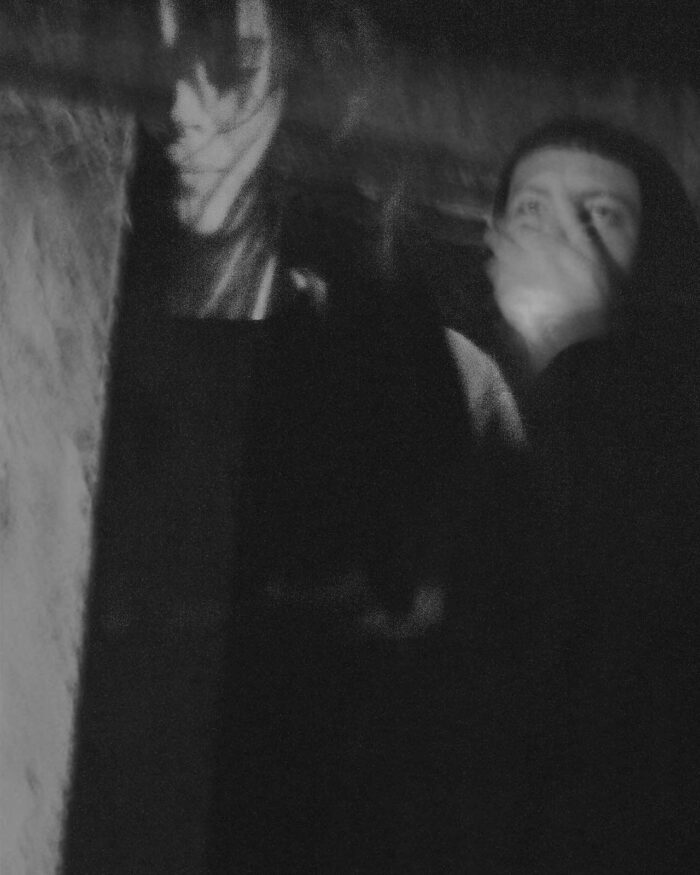
At the time of our chat, Frederikke and Jack were planning to meet soon in Copenhagen to practice together, but till then, they had been working remotely, pursuing “a research-driven process,” exchanging inputs and references; “throwing ideas back and forth, and talking a lot about dreams, both intimate and diaristic, as an extension of the self and its environment, but also as something mythical;” working on each other’s scraps of writing from the past, reinterpreting them from a different point of view and a different moment in time. This unique set of conditions created an interesting place to operate from, an emptiness to be filled, a lack of language, giving them the chance to create something new—a space to be inhabited, a space for the making of a fiction.
“This is entirely new to both of us,” said Jack, choosing not to reveal the central theme that’s driving the creation of GRIEND, only offering hints at the ideas they’re drawing from: “It’s crazy, there’s no physical evidence of this thing yet. So, we’re all writing about a concept, and that’s a really special kind of place to be in. It’s also just a very unique set of parameters to place on a creation—something that I’ve never really had before. It’s exciting. It doesn’t feel like it’s bound by anything. So, we don’t want to take any prior context into it, other than just yourself and the tendencies you have whenever you create anything.”—“Obviously, you will take in your creative DNA, but we are in a place where we want to just have a real go at something completely new, and I think that’s where the excitement’s at.”
“I find it very liberating to not have to source from the same place as I do with Puce Mary,” commented Frederikke. And so Jack: “With this performance, I get to write in a way that’s not drawing from things that typically I draw from. It’s a completely new aspect of self-expression. There’s a duality to it: there will also be elements of fictionality, which is really exciting, because I’ve never really tapped into that kind of fictional writing.”—“It almost feels like we’ve set out to write a story,” continued Frederikke, “but I can’t tell you what it’s going to look like when we’re done.”
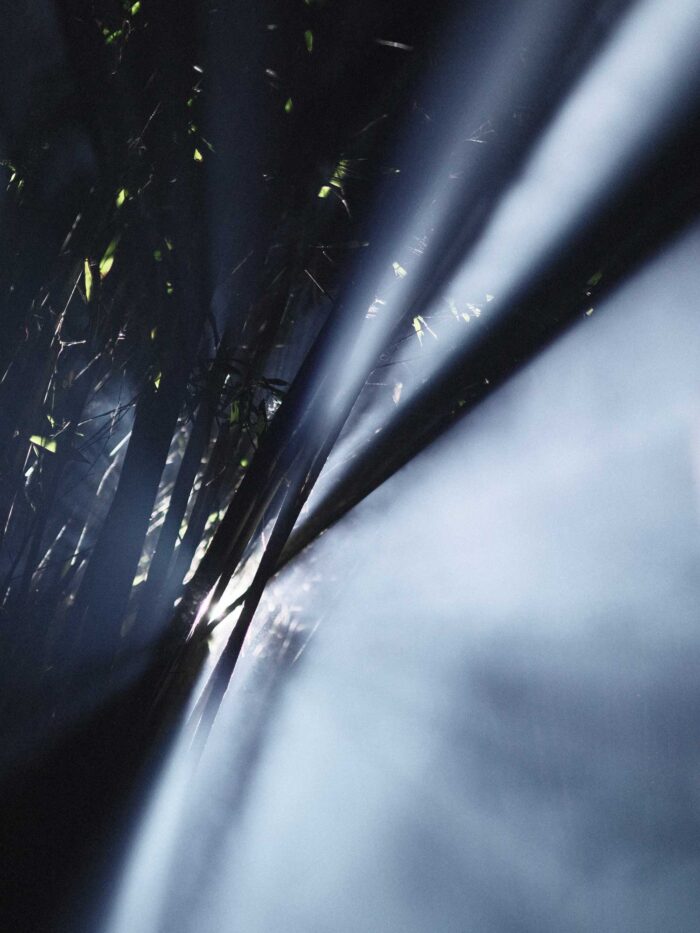
“Going down the rabbit hole of looking for abandoned places,” the two found out about Griend, laying just between Preston and Copenhagen. “The fact it is an actual place isn’t so important,” commented Frederikke. “We’re more interested in using it as a sort of container for ideas, even as an imaginary space.” With GRIEND, their aim is to “take people to a place that feels half awake, in and out of a state of lucidity.”—“When it’s done, I hope the memory of it is a little bit hazy, and you have to kind of chase it down the line,” Jack added.
“I think we just want to create a bit of this lucidity thing also through space, through the stage and off-stage,” continued Jack—“If you play with the right amount of haze and light, you can turn it into this dream, or even nightmare—we’re working in that realm of thinking, of how to disrupt the space in a way that feels quite lucid.” He attended LOST in 2024 and told us how “the whole place felt surreal.” Hosting some of the most exciting live acts at the forefront of evocative, moody, leftfield electronic music, the festival constructs a one of a kind moment for sonic exploration. In between a chance for close listening and a set for dancing and clubbing, the festival’s careful curation led by Luca Giudici features acts reshaping the landscape of avant-garde music. Beyond genres, across scenes, with in mind first and foremost the imperative of exceptional music and sincere connections. Personal meditative states mix with meaningful contact amongst the crowd, bounded together by a sense of intimate complicity. At once a personal and collective sonic journey, the experience of LOST feels as elusive as the lucid fictions that GRIEND is constructing.
“The music we make is always going to be somewhat leathered in a little bit of darkness and a little bit of the dirge, and dirt, and silt. But I do think, at the same time, a lot of what we’re doing with this is unpacking mystery.”—“There will naturally have to be moments of light, moments of anger, and noise. There’ll be moments of space, and moments of proper beauty as well. The noise part is there to really startle people and wake them up and bring them back. Then, we can also sink back into things that are very distant, sleepy sounds,” Jack anticipated. “I think we’re both keen to try things that are a little bit different to what we normally do. We’d like to play with a little bit of guitar, potentially, and I think I’d like to do a little bit more instrumentation-based stuff too. The idea is grandiose now. When we’ll get into the real thick of it, we’ll probably end up having to scale it back to where it works.”
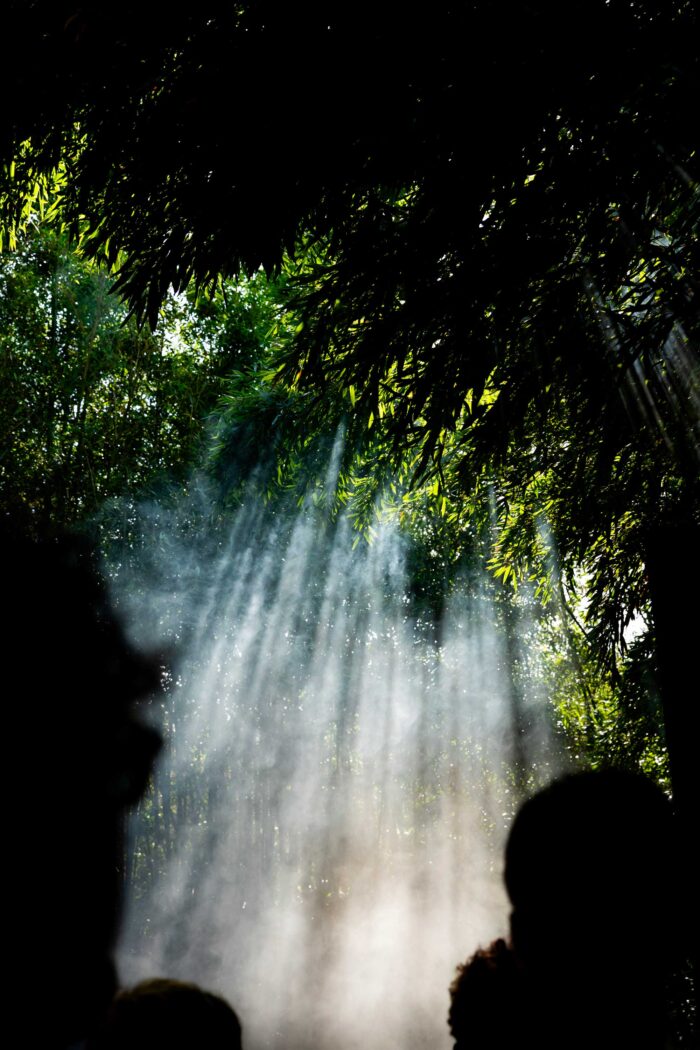
“I think we both create in ways that extrapolate a lot of inner feeling, inner thought,” Jack told us. “The textures of what we make align pretty well. I feel like the way in which I write, a lot of the time, lends itself into a sonic world that Frederikke builds.” Then, about the possibility of expanding the collaboration, he added: “Maybe there’ll be collaborators in a sense of non-physical collaboration, maybe more and more people tapping into this theme. We can take information from them to inform what we’ll do as like figureheads of this thing—it’s a weird one—but I think we’re going to, at least in a physical sense, just keep it between the two of us.”
Frederikke and Jack opted for a new name, instead of going for a Puce Mary and Rainy Miller collaboration, to reinforce the idea of a “fresh page to work on,” but they’re not interested in making up a band. Talking about the seemingly ever-returning interest for the band as a format to experiment with, Jack explained: “As much as I hate the word deconstruct, because it sounds cliché, I guess I am trying to deconstruct the band thing” in the sense that “the musicality is informed by that idea, but when it comes back out live, that becomes much more theatrical.” “So, how do we take this thing and really dissolve it and then put it back together in a way that looks absolutely non-uniform? You have your Psychic TV, Coil, Throbbing Gristle, Sonic Youth at times, that have been around for years, doing this. But again, how do you actually deconstruct it further than that? I’m not talking about the music—obviously it’s hard work to make music better than fucking Coil—but just in terms of the set up, or the concept. For me, given a lack of understanding of how to be in a band, I may as well just go and sit on the outside of its boundaries. I may as well push it because I don’t know the rules anyway. There’s no format for me to follow. With that lack of understanding comes the opportunity to put the puzzle back together in a way that’s completely new.”
“GRIEND already has multiple meanings, but it is an open concept for us to explore through our new collaboration,” said Frederikke. “I think we will build a story for me and Frederikke to then go and write a score for. I’m gonna act as somewhat of a narrator that pops in and out. This recurring character will appear in different places in order to narrate certain sections of this tapestry we are building,” Jack anticipated. Then, about the theme they’re working on, he teased: “It’s not some crazy, farfetched concept—we’re just writing about something that’s very relevant to every single living organism in the world, but that is also the most intriguing part of it. We have no idea what it’s going to be like; we just have an inkling that it’s going to be something people will want to see.”
